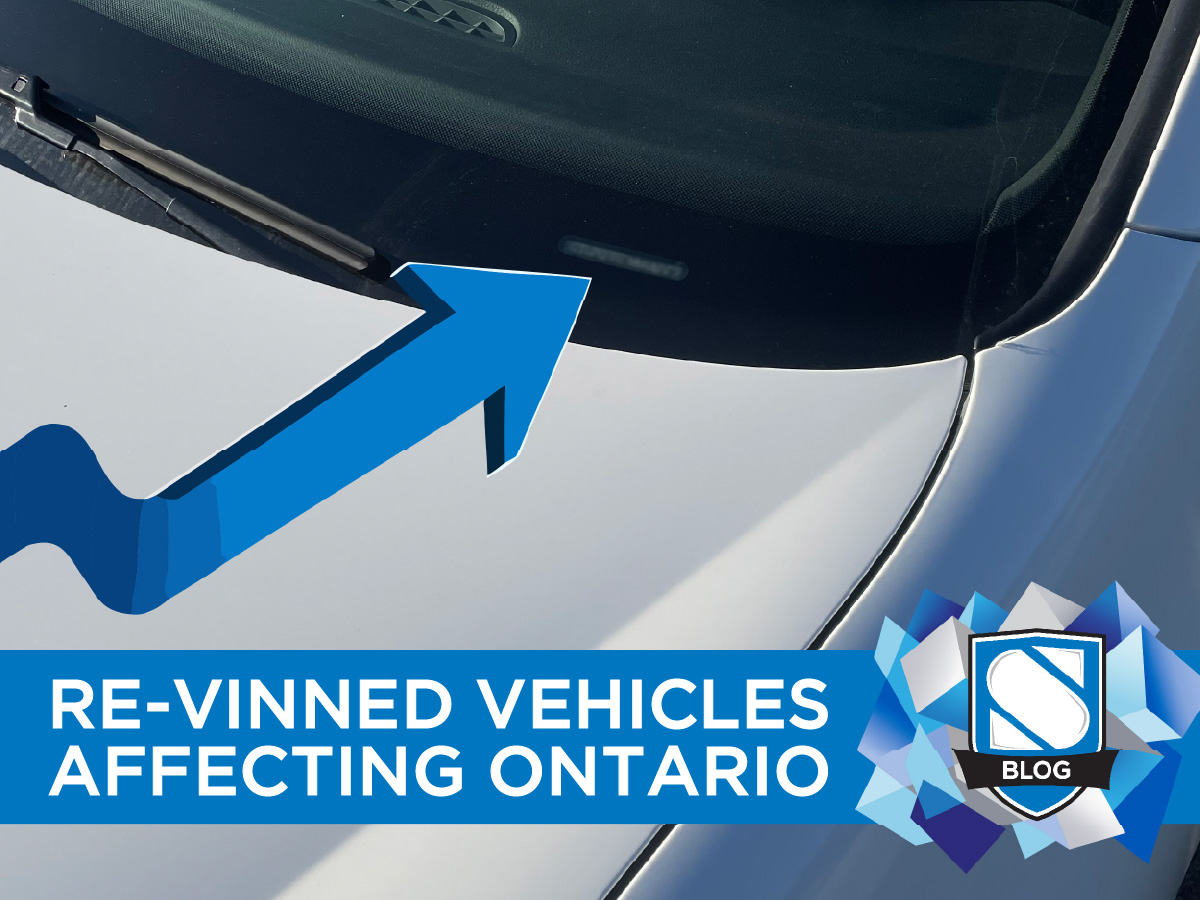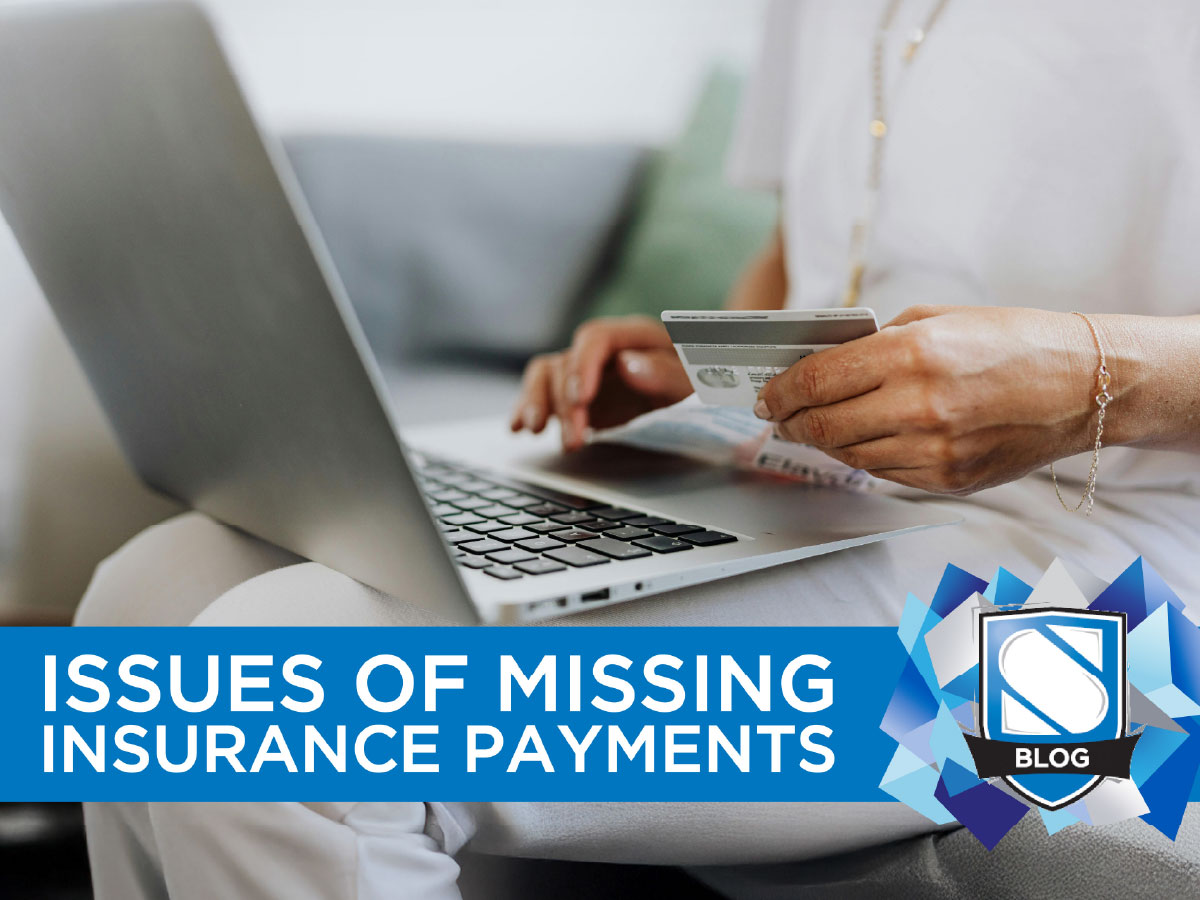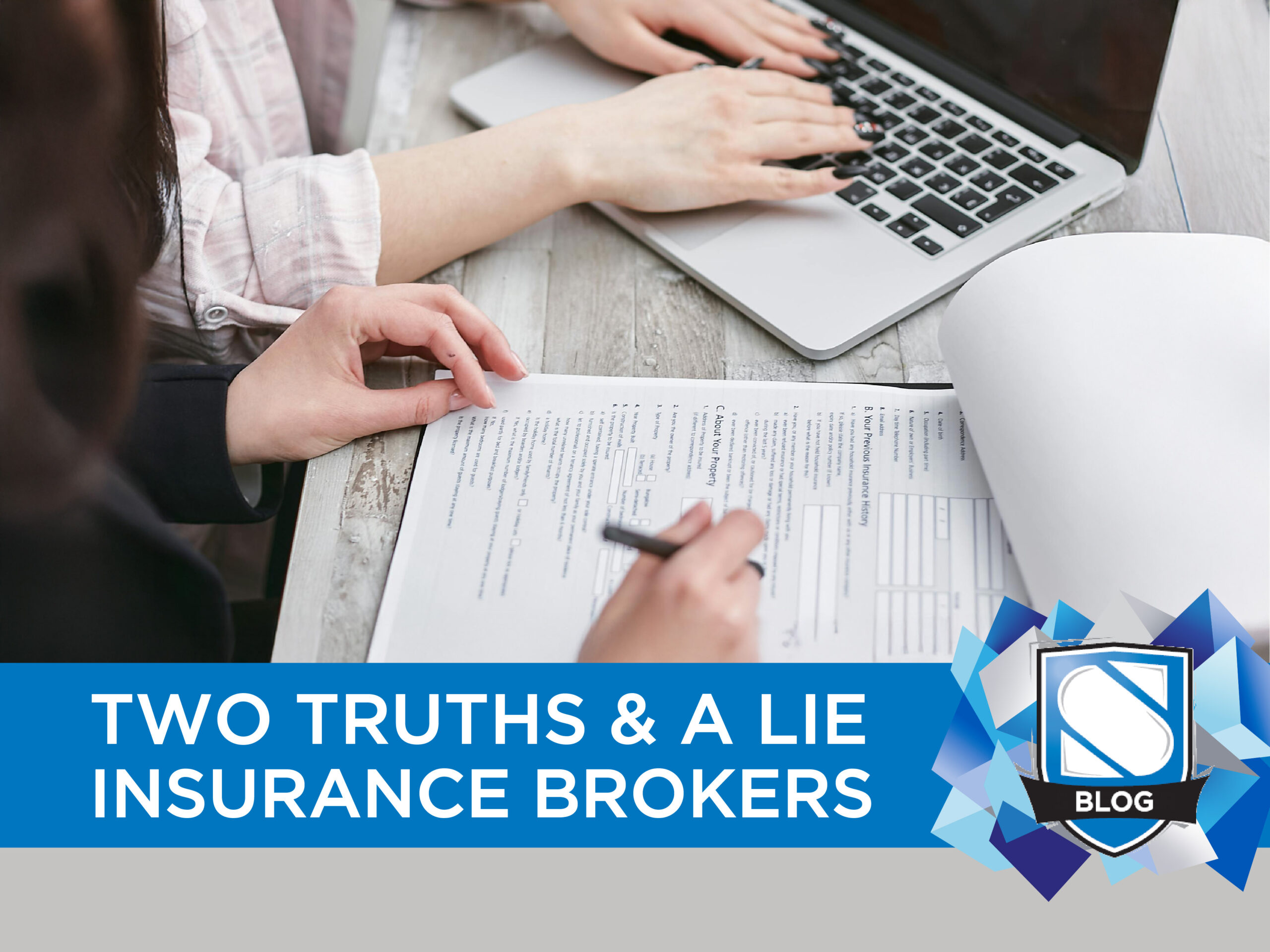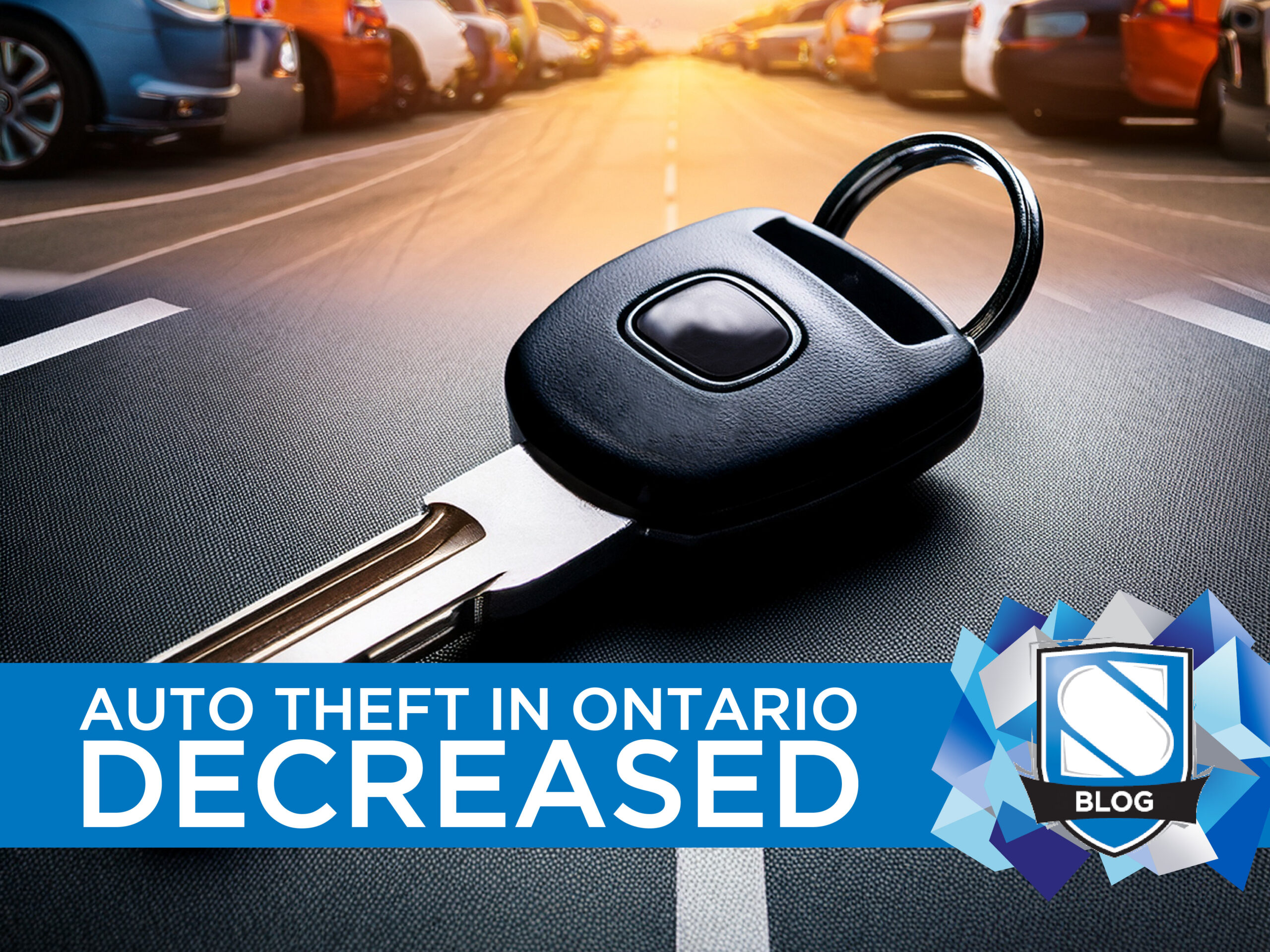Ontario has seen a surge in an increasingly common form of auto theft known as “re-vinning,” a tactic used by criminals to disguise stolen vehicles and sell them to unsuspecting buyers.
The Staebler Blog first wrote about this trend early in 2024: Warning for Car Buyers: Revinned Vehicles in Ontario
This deceptive practice has left countless consumers out of pocket and without vehicles, as highlighted in a series of investigative reports by CTV’s W5.
What is Re-vinning, and How Does It Work?
Re-vinning is a process where thieves alter or replace a stolen vehicle’s Vehicle Identification Number (VIN) to conceal its identity and pass it off as a legitimate vehicle for sale. The VIN, a unique 17-character code assigned to every vehicle, acts like an automotive fingerprint — tracking its history, ownership, and status. By tampering with this number, criminals can disguise a stolen car and make it appear legal to buyers, dealers, and even provincial registration systems.
According to the W5 investigation, re-vinning is a lucrative tactic employed by organized crime groups. Here’s how it typically works:
- Stealing the Vehicle: Criminals steal a vehicle, often targeting high-value or popular models like SUVs or luxury cars, which are easier to resell.
- Obtaining a Fake VIN: Thieves either clone the VIN from a similar, legally registered vehicle (e.g. from a sedan sitting in a mall parking lot) or fabricate a completely fictitious VIN to create a “ghost vehicle.” In some cases, they may use VINs from exported vehicles, which are harder to trace.
- Altering the Vehicle: The stolen vehicle’s original VIN, found on the dashboard, door panel, or other components, is replaced with the fake or cloned VIN. This can involve reprogramming electronic modules in modern vehicles or physically swapping VIN plates.
- Fraudulent Registration: The vehicle is then registered with the fake VIN, often with the help of insiders or faulty verification processes. The W5 report revealed a case involving a ServiceOntario employee allegedly assisting in a scheme to register stolen vehicles, enabling them to be resold with seemingly clean titles.
- Selling to Unwitting Buyers: The revinned vehicle is sold through dealerships, private sales, or online platforms like Facebook Marketplace. Buyers, unaware of the fraud, purchase what they believe is a legitimate vehicle, only to later discover it’s stolen when police seize it or insurance claims are denied.
The scale of this issue is staggering, with one of our insurance company partners: Aviva Canada noting a 338% increase in re-vinning investigations between 2022 and 2024.
The Impact on Consumers
The consequences of buying a revinned vehicle are devastating. As highlighted in the CTV W5 investigation, an Ontario family purchased a car from a dealership, only to later learn it was stolen and revinned. When the true status of the vehicle was uncovered, it was seized by police, leaving the family without the car and, in many cases, without financial compensation.
Insurance claims are often denied because the vehicle is deemed stolen property, and private buyers are particularly vulnerable, as they lack the protections offered through licensed car dealership.
How Can Drivers Protect Themselves?
Avoiding a revinned vehicle requires vigilance and due diligence. Here are key steps Ontario car buyers can take to protect themselves:
- Buy from legitimate OMVIC-Registered Dealers: Maureen Harquail, CEO of the Ontario Motor Vehicle Industry Council (OMVIC), emphasizes the importance of purchasing from OMVIC-registered dealers. These dealers are regulated and buyers have access to a compensation fund if something goes wrong. Avoid private sales unless you’re confident in the seller’s legitimacy, as private transactions offer little recourse if the vehicle turns out to be revinned.
- Run a CARFAX Report: Always obtain a vehicle history report from a reputable provider like CARFAX Canada. These reports can reveal red flags, such as odometer discrepancies, inconsistent service records (e.g., a vehicle serviced in another province or country), or a history of theft.
- Inspect the VIN Physically: Check the VIN on the vehicle’s dashboard, door panel, and other locations to ensure they match and show no signs of tampering (e.g., scratches, mismatched fonts, or glue residue). Compare the VIN to the paperwork provided by the seller.
- Be Wary of Deals That Seem Too Good to Be True: Suspiciously low prices or high-pressure sales tactics are red flags. Criminals often use attractive deals to lure buyers into quick purchases without proper checks. Promotions like “Today Only” deals are a big red flag.
- Verify the Seller’s Credentials: Research the seller, whether it’s a dealership or an individual. For dealerships, confirm their OMVIC registration on the OMVIC website. For private sellers, request proof of ownership, such as the vehicle’s registration and service history, and cross-check it with the VIN.
- Leverage New Tools and Regulations: Recent developments, such as CARFAX’s VIN Fraud Check and CBSA’s initiative to share vehicle export data with organizations like CARFAX and Équité Association. While these tools are primarily for dealers, consumers can benefit by choosing dealerships that utilize them. Additionally, Ontario Premier Doug Ford has vowed to strengthen vehicle registration systems to catch stolen and revinned cars before they’re sold.
- Consult a Professional Inspector: Before finalizing a purchase, hire a professional to inspect the vehicle. They can spot signs of VIN tampering or other issues that may indicate the car is stolen.
Looking at the Road Ahead
Re-vinning is a growing problem in Ontario, fueled by organized crime and gaps in the vehicle registration system. The W5 series emphasizes the urgency of addressing this issue, with investigations revealing not only the mechanics of the scam but also the involvement of insiders. While Ontario is taking steps to improve safeguards, such as enhanced data sharing and Premier Doug Ford’s commitment to action, consumers are also encouraged to remain proactive.
By buying from reputable dealers, running vehicle history reports, and thoroughly inspecting VINs, car buyers can reduce their risk of purchasing a stolen and revinned vehicle.
. . .
Staebler Insurance is a general insurance broker specializing in car insurance, home insurance, small business insurance, and commercial insurance. Staebler Insurance Brokers proudly serve Kitchener, Waterloo, Cambridge, Guelph, Stratford, Listowel, Fergus, Elora, Wellington County, Perth County, Waterloo Region, the Greater Toronto Area, Golden Horseshoe, Niagara Region, and all over beautiful Ontario, Canada. Get a Quote to get started today.














I really could have used this information a few years ago in 2019 when I bought a range Rover that had been revinned. The job was immaculate a close inspection of the physical plates and ID marks throughout the vehicle were perfect. But a short while later it was still from me from my work parking lot they sold it to me just to steal it and resell it again. I’m glad CARFAX is including more details cuz everything I looked at didn’t reveal this. And maybe a cheap $50 scanner that you can plug into the ECU might reveal it if they haven’t taken the time to reprogram the ECU. Which I’m told they often don’t